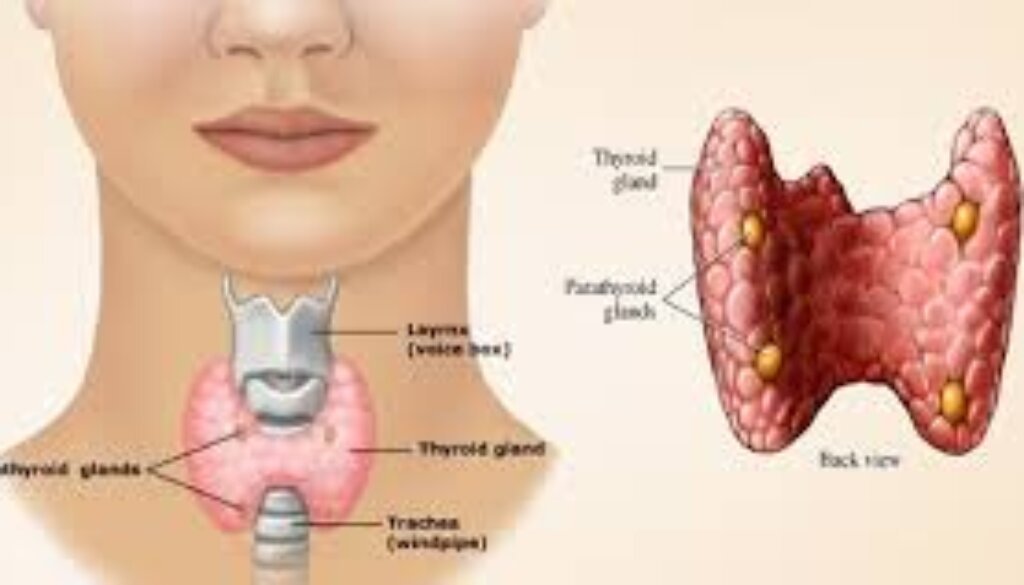14 Ways to Reclaim Your Thyroid Health
The past few years have posed significant challenges for many of us, taking a toll on our health in various ways. Individuals living with chronic health conditions have been especially impacted by recent events. Some of us may have missed regular doctor visits or lacked access to proper diet and exercise routines. Beyond physical health, mental health concerns such as anxiety and depression have also become prevalent.
As we reflect on the whirlwind of another year and contemplate what the future may hold, it’s essential to remember the importance of thyroid health. This small, butterfly-shaped gland located at the base of the neck plays a crucial role in producing hormones that regulate metabolism.
When thyroid hormone production decreases, it can lead to a slowdown and alteration in various bodily processes, affecting nearly every system. An underactive thyroid can manifest in symptoms like fatigue, cognitive impairment, weight fluctuations, and digestive issues. Below are some suggestions to prioritise thyroid health as you compile your lists and resolutions for the upcoming year.

1. Schedule your doctor’s appointments in advance.
Looking ahead to the preventative exams you’ll need this year and scheduling them in advance is a proactive approach to maintaining your health. Having these appointments booked ensures you secure a slot and prevents postponing them for another year. Virtual appointments offer a convenient option for accessing comprehensive care without the need for in-person visits.
2. Create a timeline for your health goals.
Establishing realistic deadlines for your health goals can enhance their achievability. Whether it’s reaching a specific weight or consistently getting eight hours of sleep each night, setting deadlines can provide motivation and direction. Once you’ve set your goals, create a plan of action that outlines the steps needed to achieve them within the given timeframe.

3. Check your thyroid function.
Regularly monitoring your thyroid function based on your doctor’s recommendation is important for maintaining overall health. If you’ve been experiencing unusual symptoms or it has been a while since your last thyroid function test, it’s advisable to undergo testing again. This proactive approach ensures timely detection of any thyroid-related issues and allows for appropriate management and treatment.
4. Ditch endocrine disruptors.
Endocrine disruptors, which are human-made chemicals, are commonly present in various everyday products such as plastic bottles, detergents, food items, toys, cosmetics, and pesticides. To minimise exposure to these chemicals, consider making the following changes:
1. Replace personal care products with natural or homemade alternatives. Look for products made with organic ingredients and free from harmful chemicals.
2. Opt for glass containers over plastic ones, especially for storing food and beverages. Glass is a safer option as it doesn’t leach harmful chemicals into the contents.
3. Switch to natural cleaning products or make your own using simple ingredients like vinegar, baking soda, and essential oils. These alternatives are effective for cleaning while reducing exposure to harmful chemicals.
By making these adjustments, you can reduce your exposure to endocrine disruptors and create a healthier environment for yourself and your family.
5. Invest in water filtration.
Water fluoridation is the regulated addition of fluoride to a public water supply to mitigate tooth decay and cavities. Nonetheless, research indicates that heightened fluoride levels in drinking water can affect thyroid-stimulating hormone (TSH) and thyroid hormones. Installing a water filtration system can aid in removing fluoride, potentially minimising its interference with thyroid function.

6. Strive for a more balanced diet.
Many of us set ambitious goals for adopting new dietary habits in the new year, promising to cut out indulgences like cookies. However, we often struggle to stick to these plans because many diets prioritise short-term results over long-term sustainability. Recognizing the significant role of nutrition in thyroid function, this year, shift your focus towards maintaining a balanced diet.
The Curves Nutrition & Weight Management Program offers a healthy, balanced, and sustainable approach to weight loss. With a three-phase approach, it aims to establish healthy eating and exercise habits for life. This program emphasises permanent weight loss results without the need for ongoing dieting by boosting metabolism and preserving muscle mass. Additionally, you’ll have the opportunity to meet with a Curves Coach, either online or in-club, once a week to review your progress, address any questions, and reinforce what you’ve learned.
7. Try an anti-inflammatory diet.
In the upcoming year, prioritise fueling your body with nutrient-dense foods. Refined sugars can lead to blood sugar spikes followed by crashes, which can elevate stress levels. Instead, opt for foods rich in healthy fats such as avocados, eggs, and nuts. These choices support feelings of satiety, regulate mood, improve sleep quality, and enhance energy levels.
8. Learn how to understand food labels.
Reading nutrition labels can indeed be challenging, but having a grasp of what’s in your food is crucial. Understanding how to interpret food labels can aid in avoiding thyroid-unhealthy ingredients commonly found in processed foods. However, if deciphering labels seems daunting, you can opt for simpler options by choosing whole foods that don’t require labels. Foods like fresh fruits, vegetables, and unprocessed meats are typically the healthiest choices as they are minimally processed and contain few, if any, additives or harmful ingredients.
9. Take your vitamins.
The thyroid gland relies on essential nutrients like iodine and tyrosine to produce thyroid hormones. Additionally, minerals such as selenium, iron, and zinc play a crucial role in converting inactive thyroid hormone (T4) into its active form (T3). Selenium, in particular, can help reduce levels of thyroid peroxidase (TPO) antibodies, which, when elevated, can lead to damage to the thyroid gland. To ensure you’re obtaining these vital nutrients, consider incorporating a daily thyroid supplement into your routine.

10. Understand your thyroid medication.
Thyroid medication comes in various forms, brands, combinations, and dosage levels, as there’s no one-size-fits-all solution. It’s essential to collaborate with a trusted doctor to determine the most suitable thyroid hormone replacement medication for your specific needs. Take the time to understand how your medication functions, the optimal way to take it, and any precautions to avoid. Open communication with your healthcare provider ensures you receive the most effective treatment tailored to your individual circumstances.
11. Make sleep a priority.
The quality of your sleep, whether good or bad, impacts various aspects of your health. It influences how your body metabolises food, regulates blood sugar levels, retains information, manages inflammation, and more. To improve your sleep, consider factors such as your sleep environment, bedtime routine, and establishing a consistent bedtime schedule. Creating a conducive sleep environment, adopting a relaxing wind-down routine, and adhering to a regular bedtime can significantly enhance the quality of your sleep and overall well-being.

12. Find ways to s l o w d o w n and relax.
Indeed, the endocrine system, including the thyroid, is sensitive to stress. When the body experiences stress, the adrenal glands release cortisol. Elevated levels of cortisol have been linked to increased levels of thyroid-stimulating hormone. To mitigate stress and support thyroid health, it’s essential to incorporate relaxation techniques into your daily routine. Consider activities such as meditation, mindful eating, gratitude practice, engaging in hobbies, prioritising quality sleep, and spending time with loved ones. These practices can help manage stress levels and promote overall well-being, thereby supporting a healthy thyroid function.
13. Find movement you enjoy.
Hypothyroidism often manifests with symptoms like weak, achy, or stiff muscles and joints, making exercise seem daunting. Finding the right balance is crucial; too much movement can exacerbate symptoms, while too little can compromise overall health. Keep it simple: a brief home workout can yield significant benefits. MyCurves On Demand provides 30-minute workouts on demand, allowing you to enhance your health and fitness at your own pace. Remember, progress, no matter how gradual, is still progress.

14. Limit your notifications and screen time.
Thyroid disease can indeed impact mood, often leading to feelings of anxiety or depression. Research suggests that excessive screen time is a significant risk factor for mental health issues in adults, alongside vision disturbances and weight gain. To promote better mental and physical well-being, consider reducing screen time this year. Instead, explore creative outlets that bring you joy and fulfilment. Engaging in activities such as painting, writing, gardening, or playing music can provide a therapeutic escape from the digital world and contribute to overall mental wellness.






